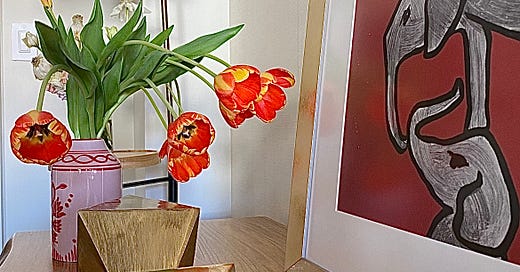I define a dead truth as something you used to believe but no longer do. Some of these truths are banal (e.g. knee high boots suck) and thus slip away seamlessly, vanishing into a graveyard of feelings or ideas overturned. But some of them are much more systemic. Some of these beliefs are so tied to one’s sense of self that they have organized elements …
Keep reading with a 7-day free trial
Subscribe to The Cereal Aisle by Leandra Medine Cohen to keep reading this post and get 7 days of free access to the full post archives.



